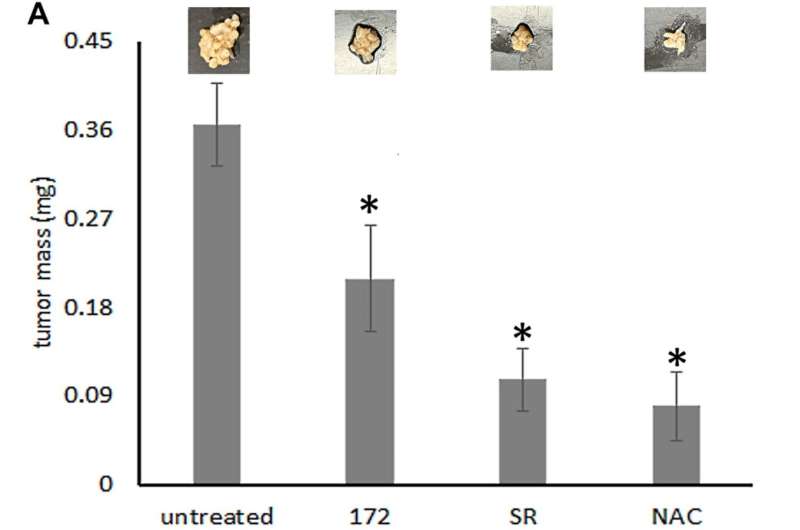This article has been reviewed according to Science X's editorial process and policies. Editors have highlighted the following attributes while ensuring the content's credibility:
fact-checked
peer-reviewed publication
proofread
Osteopontin induces mitochondrial biogenesis in deadherent cancer cells: Study

A new research paper was published in Oncotarget is titled, "Osteopontin induces mitochondrial biogenesis in deadherent cancer cells."
Metastasizing cells display a unique metabolism, which is very different from the Warburg effect that arises in primary tumors. Over short time frames, oxidative phosphorylation and ATP generation are prominent. Over longer time frames, mitochondrial biogenesis becomes a pronounced feature and aids metastatic success. It has not been known whether or how these two phenomena are connected.
In this new study, researchers Gulimirerouzi Fnu and Georg F. Weber from the University of Cincinnati's James L. Winkle College of Pharmacy hypothesized that Osteopontin splice variants, which synergize to increase ATP levels in deadherent cells, also increase the mitochondrial mass via the same signaling mechanisms.
"Here, we report that autocrine Osteopontin does indeed stimulate an increase in mitochondrial size, with the splice variant -c being more effective than the full-length form -a," write the researchers.
Osteopontin-c achieves this via its receptor CD44v, jointly with the upregulation and co-ligation of the chloride-dependent cystine-glutamate transporter SLC7A11. The signaling proceeds through activation of the known mitochondrial biogenesis inducer PGC-1 (which acts as a transcription coactivator). Peroxide is an important intermediate in this cascade, but surprisingly acts upstream of PGC-1 and is likely produced as a consequence of SLC7A11 recruitment and activation. In vivo, suppression of the biogenesis-inducing mechanisms leads to a reduction in disseminated tumor mass.
"This study confirms a functional connection between the short-term oxidative metabolism and the longer-term mitochondrial biogenesis in cancer metastasis—both are induced by Osteopontin-c. The results imply possible mechanisms and targets for treating cancer metastasis," conclude the authors.
More information: Gulimirerouzi Fnu et al, Osteopontin induces mitochondrial biogenesis in deadherent cancer cells, Oncotarget (2023). DOI: 10.18632/oncotarget.28540




















